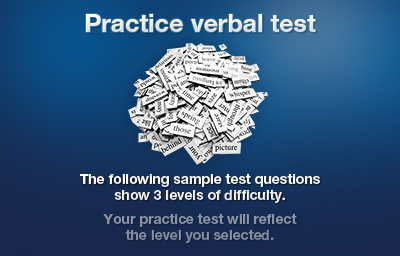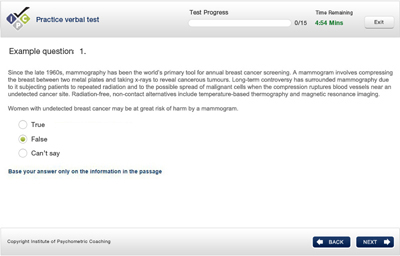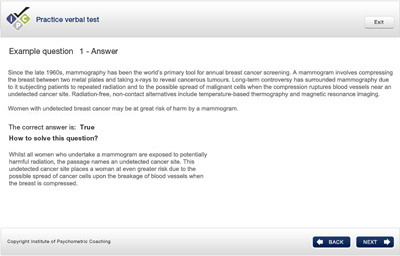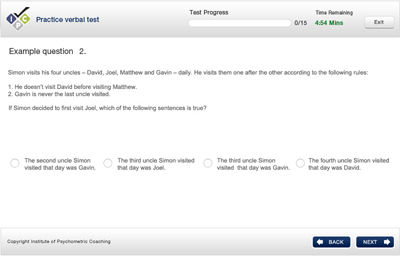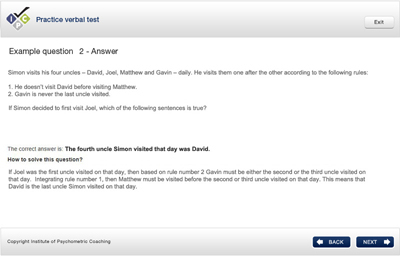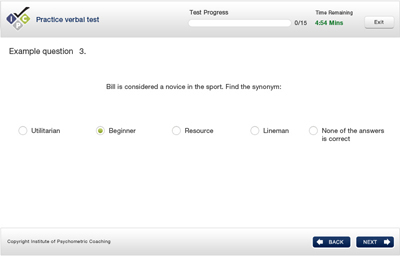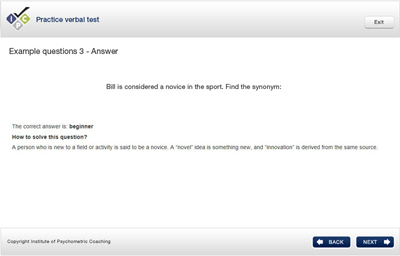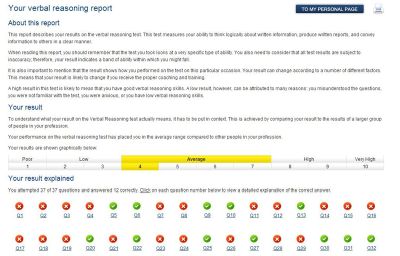What to expect in your verbal aptitude test or verbal reasoning test
The verbal reasoning test is timed. Although different verbal reasoning tests may have different time limits, you should expect to be given approximately 30 seconds per question. The verbal reasoning test is designed so only 1% to 2% of test-takers can correctly answer all questions within the time limit.
In the typical verbal reasoning test, you are given short passages of written information followed by a number of statements, and your task is to decide whether each statement is:
- True. This means that the statement logically follows the information provided in the passage.
- False. This means that the statement does not logically follow the information provided in the passage.
- or Cannot Tell. This means that there is insufficient information in the passage to make a decision regarding the statement.
It is important to notice that your answers must only be based on the information given in the passage. This means that even if you have extensive knowledge in the specific topic which extends beyond the given information (or may have information which contradicts the written information), you should only base your answer on the information written in the passage.
Topics of passages include material from the social sciences, physical or biological sciences, and business-related areas (marketing, economics, human resource management, etc.). Because the verbal test includes passages from several different content areas, you may be generally familiar with some of the material however, no specific knowledge of the material is required. All questions are to be answered on the basis of what is stated or implied in the reading material.
There are other types of verbal reasoning tests. A popular one, also known as a logical thinking test, includes a number of sets of arguments or statements. Your task in each set is to identify which statement or arguments, strengthens the principle argument in each question. For example, let’s look at the following set of arguments or statements:
- Only fish oil contains Omega 3
- Only foods that contain Omega 3 help with brain development
Which conclusion can be derived from the combination of these two statements?
- All fish oils help with brain development
- Only what contains Omega 3 is fish oil
- All that helps with brain development is fish oil
- There are fish oils that help with brain development
Answer explanation:
The third option (c.) is the correct answer. From the first statement (A), we can conclude: fish oil => contains Omega 3. The second statement (B) tells us: that which contains Omega 3 => helps with brain development. If we combine the two statements in reverse, we can see: helps with brain development => contains Omega 3 => fish oil. Thus, helps with brain development => fish oil.
See below some verbal aptitude practice test questions examples. You can click on the image to enlarge.


